Find Help
More Items From Ergsy search
-

What is Prostate Cancer?
Relevance: 100%
-
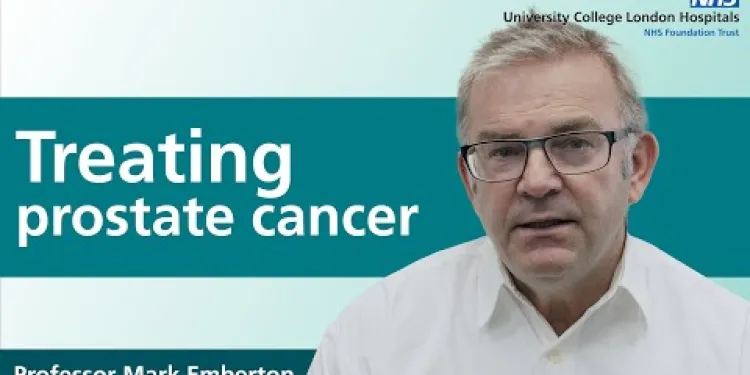
Treating prostate cancer
Relevance: 100%
-
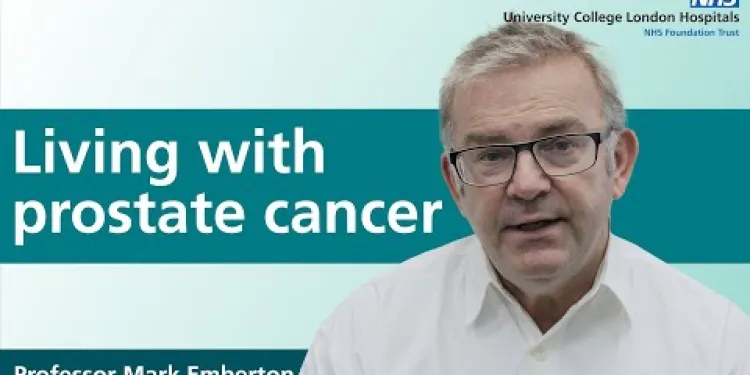
Living with prostate cancer
Relevance: 99%
-

How is prostate cancer treated?
Relevance: 96%
-

Is BPH the same as prostate cancer?
Relevance: 96%
-
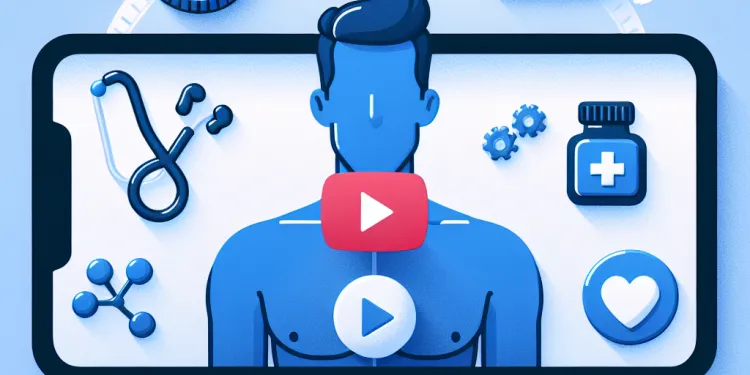
Am I more at risk of prostate cancer?
Relevance: 96%
-
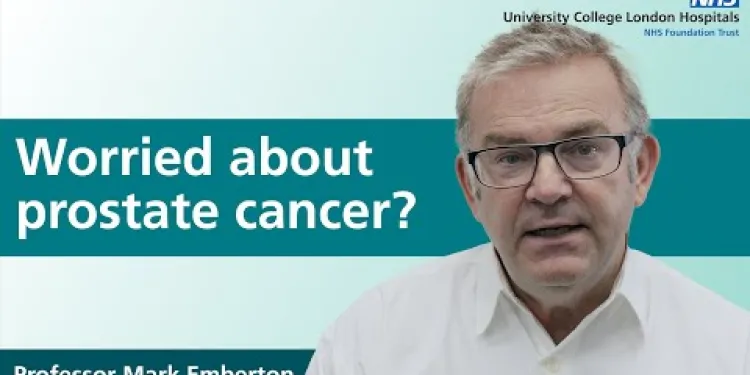
Prostate cancer diagnosis and tests
Relevance: 95%
-
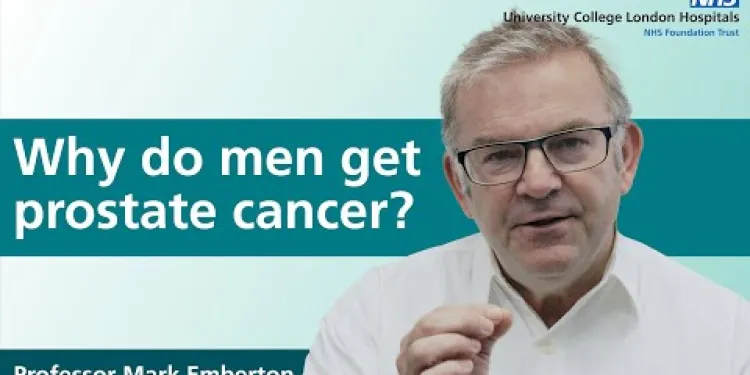
Why do men get prostate cancer?
Relevance: 93%
-
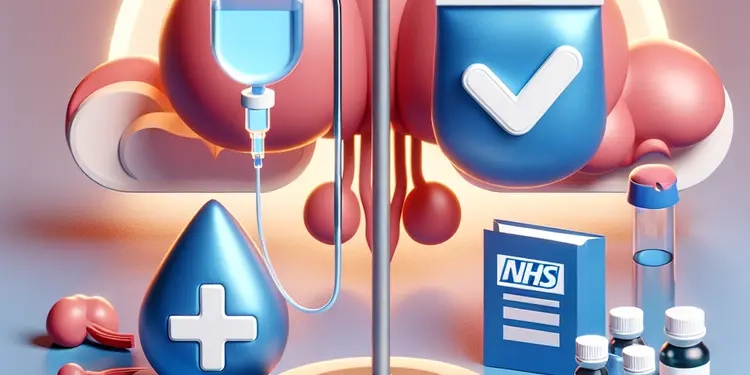
When is chemotherapy used for prostate cancer?
Relevance: 92%
-
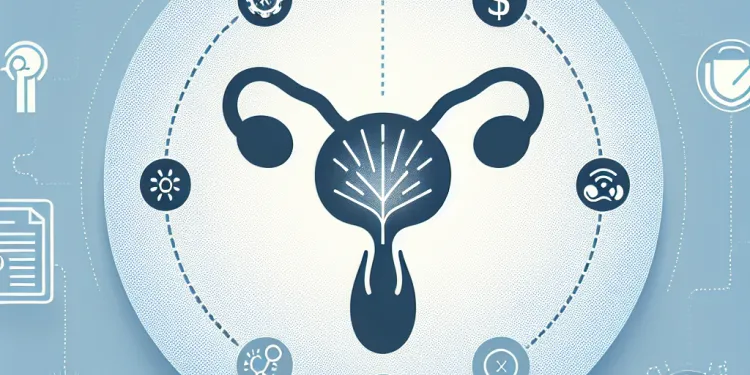
Hormone Therapy for prostate cancer
Relevance: 92%
-
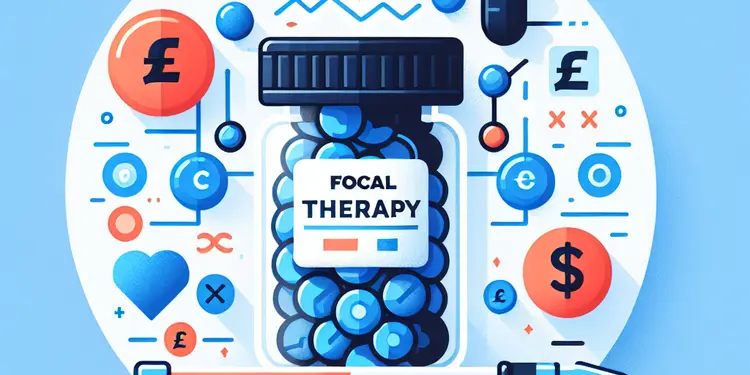
Is focal therapy an option for prostate cancer?
Relevance: 91%
-
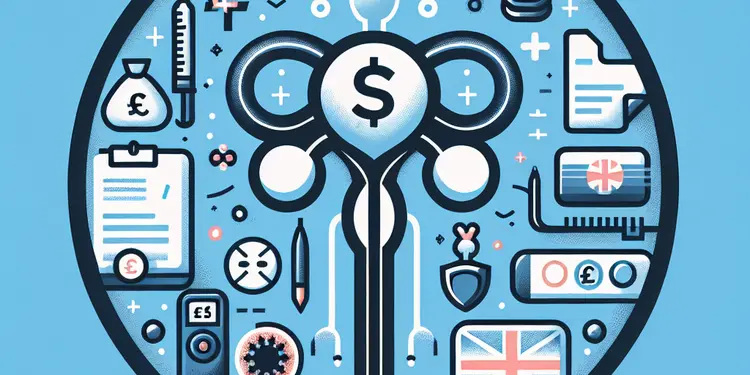
How is advanced prostate cancer treated?
Relevance: 91%
-

Does Abiraterone cure prostate cancer?
Relevance: 90%
-

What is the role of immunotherapy in prostate cancer treatment?
Relevance: 90%
-
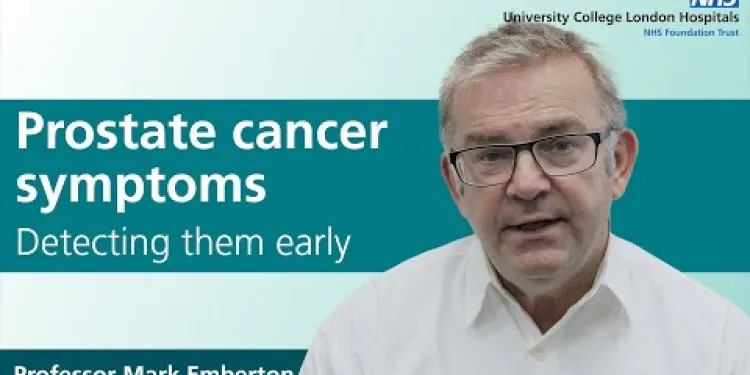
Prostate cancer symptoms - detecting them early
Relevance: 90%
-
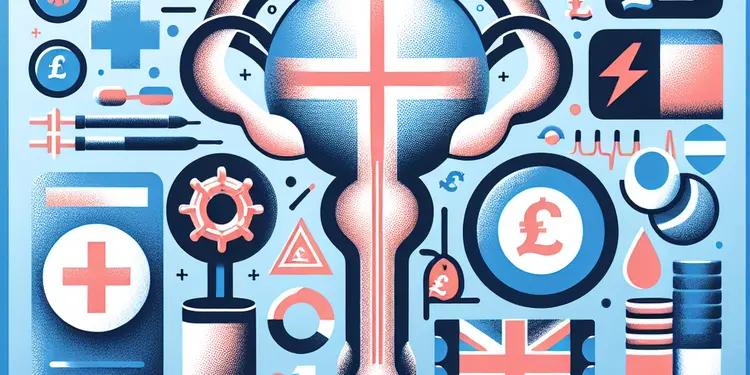
Can Abiraterone be used for early-stage prostate cancer?
Relevance: 89%
-

Can prostate cancer recur after treatment?
Relevance: 89%
-

Does BPH increase the risk of prostate cancer?
Relevance: 88%
-

Breakthrough in Cancer Treatment Offers Hope for Prostate Cancer Patients
Relevance: 88%
-

Is there an NHS app for managing prostate cancer care?
Relevance: 88%
-

How does surgery treat prostate cancer?
Relevance: 88%
-
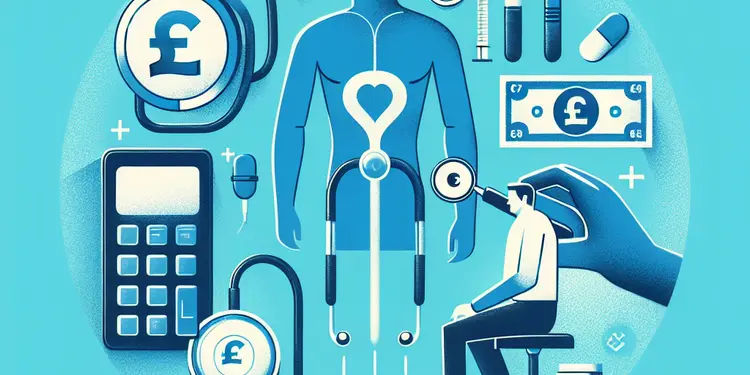
Are there clinical trials available for prostate cancer treatment?
Relevance: 87%
-

What are PSA levels? - Prostate Cancer
Relevance: 87%
-
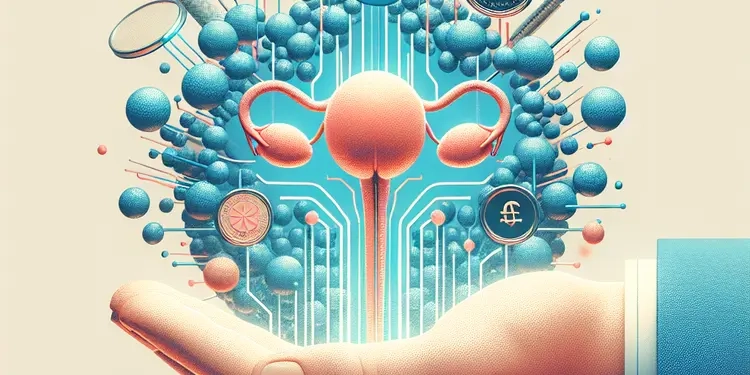
Can prostate cancer be treated with targeted therapy?
Relevance: 87%
-

Are there online support services for prostate cancer patients on the NHS?
Relevance: 86%
-

Does the NHS offer an online hospital for prostate cancer?
Relevance: 86%
-

What is the purpose of a bone scan in prostate cancer treatment?
Relevance: 86%
-

Are there specific vegetables that are more effective against prostate cancer?
Relevance: 86%
-

What is active surveillance in prostate cancer treatment?
Relevance: 86%
-

How does cryotherapy work in treating prostate cancer?
Relevance: 85%
-

Can lifestyle changes complement prostate cancer treatment?
Relevance: 85%
-

Does the NHS offer an online hospital for prostate cancer?
Relevance: 85%
-

Can I access prostate cancer information online through the NHS?
Relevance: 85%
-

What role do probiotics play in managing prostate cancer?
Relevance: 85%
-

What are the side effects of prostate cancer surgery?
Relevance: 84%
-

What factors determine the treatment plan for prostate cancer?
Relevance: 84%
-

How does hormone therapy help in treating prostate cancer?
Relevance: 84%
-

Can eating vegetables help slow the progression of prostate cancer?
Relevance: 83%
-

Can eating vegetables and probiotics help slow prostate cancer?
Relevance: 83%
-

Where can I find online resources for prostate cancer treatments on the NHS?
Relevance: 83%
What is Prostate Cancer?
Prostate cancer is one of the most common cancers among men globally, including in the United Kingdom. It primarily affects the prostate, a small gland in the male reproductive system responsible for producing seminal fluid. Here's an overview of prostate cancer, including its risk factors, symptoms, diagnosis, and treatment:
1. Risk Factors:
- Age: Prostate cancer risk increases with age, with the majority of cases occurring in men over 50.
- Family History: A family history of prostate cancer can elevate the risk, especially if close relatives were diagnosed at a young age.
- Ethnicity: Some ethnic groups, such as African-Caribbean and African men, have a higher risk.
- Lifestyle Factors: A diet high in saturated fats and low in fruits and vegetables, obesity, and lack of physical activity can contribute to increased risk.
2. Symptoms:
- Early-stage prostate cancer may not present noticeable symptoms.
- As the disease progresses, symptoms can include difficulty urinating, frequent urination (especially at night), weak urine flow, blood in urine or semen, erectile dysfunction, and pain in the lower back, hips, or pelvis.
3. Diagnosis:
- Diagnosis often begins with a blood test for prostate-specific antigen (PSA) levels and a digital rectal examination (DRE).
- If these tests suggest an issue, a biopsy is performed to confirm the presence of cancer.
4. Staging:
- Prostate cancer is staged to determine its extent and aggressiveness, which guides treatment decisions. Stages range from localized (confined to the prostate) to advanced (spread to other organs or distant lymph nodes).
5. Treatment:
- Treatment options depend on the cancer's stage and the patient's overall health.
- Options include active surveillance, surgery (radical prostatectomy), radiation therapy (external beam or brachytherapy), hormone therapy, chemotherapy, immunotherapy, and targeted therapy.
- Treatment decisions often involve weighing the benefits and potential side effects in consultation with healthcare professionals.
6. Prognosis:
- Prostate cancer prognosis varies widely, but many cases are slow-growing and may not require immediate aggressive treatment.
- Early detection and timely intervention significantly improve outcomes, with high survival rates for localized cases.
Prostate cancer is a complex disease with various risk factors and treatment options. Regular screenings and discussions with healthcare providers are essential for early detection and tailored management, ensuring the best possible outcomes for affected individuals.
What is Prostate Cancer?
Prostate cancer is a type of cancer that develops in the prostate, a small gland in males that produces seminal fluid. It is one of the most common types of cancer in men, particularly in older adults. Understanding prostate cancer is crucial for early detection and effective treatment.
Symptoms of Prostate Cancer
In its early stages, prostate cancer often does not cause noticeable symptoms. As it progresses, symptoms may include difficulty urinating, frequent urination (especially at night), weak or interrupted flow of urine, pain or burning during urination, blood in urine or semen, and discomfort in the pelvic area. It is important to consult a healthcare professional if any of these symptoms are experienced.
Risk Factors and Prevention
Several risk factors can increase the likelihood of developing prostate cancer. These include age (most common in men over 50), family history, race (more common in black men), and lifestyle factors such as diet and obesity. While some risk factors like age and genetics cannot be changed, maintaining a healthy diet, regular exercise, and avoiding smoking can help reduce the risks.
Diagnosis and Treatment
Prostate cancer is often diagnosed through screening tests including a prostate-specific antigen (PSA) blood test and a digital rectal exam (DRE). If cancer is suspected, a biopsy may be performed to confirm the diagnosis. Treatment options vary based on the stage and aggressiveness of the cancer and include active surveillance, surgery, radiation therapy, hormone therapy, and chemotherapy.
Living with Prostate Cancer
Being diagnosed with prostate cancer can be challenging, but many men continue to live active, fulfilling lives. Support services, counselling, and patient education programs are available to help manage the physical and emotional aspects of the disease. In the UK, organisations such as Prostate Cancer UK and the NHS provide resources and support for patients and their families.
Early detection and treatment are key to managing prostate cancer effectively. Regular check-ups and awareness of the symptoms can greatly improve outcomes and quality of life for those affected by this condition.
What is Prostate Cancer?
Prostate cancer is a common type of cancer in men. It affects the prostate, which is a small gland in the male body. This gland helps make a fluid called seminal fluid. Here is some important information about prostate cancer:
1. Risk Factors:
- Age: The risk of prostate cancer goes up as men get older. Most cases happen in men over 50 years old.
- Family History: If someone in your family had prostate cancer, you might have a higher chance of getting it too.
- Ethnicity: Some men, like African-Caribbean and African men, have a higher chance of getting prostate cancer.
- Lifestyle: Eating lots of fatty foods, not eating enough fruits and veggies, being very overweight, or not exercising can increase the risk.
2. Symptoms:
- Early prostate cancer might not have any symptoms.
- Later, it might be hard to pee or you might need to pee often, especially at night.
- You might notice weak urine flow, blood in urine or semen, problems with erections, or pain in the back, hips, or pelvis.
3. Diagnosis:
- Doctors might do a blood test called a PSA test and check the prostate with a quick exam.
- If these tests show something might be wrong, a small piece of the prostate might be taken out to check for cancer.
4. Staging:
- Doctors figure out how much the cancer has spread. This helps them decide on the best treatment. It can be just in the prostate or spread to other parts of the body.
5. Treatment:
- Treatment depends on how serious the cancer is and the overall health of the person.
- Options include watching and waiting, surgery to remove the prostate, radiation, medicines to lower hormones, chemotherapy, and other special treatments.
- You should talk to a doctor about the benefits and side effects of each treatment.
6. Prognosis:
- Prostate cancer can grow slowly, so sometimes, no immediate treatment is needed.
- Finding it early and starting treatment can lead to really good outcomes. Many men with early prostate cancer live long and healthy lives.
Prostate cancer can be complicated, but understanding the risks and treatments can help. It's important to have regular check-ups and talk to healthcare providers about any concerns. This helps catch the disease early and decide on the best care plan.
What is Prostate Cancer?
Prostate cancer is a disease that starts in the prostate. The prostate is a small gland in men. It makes the fluid that carries sperm. Prostate cancer is common in men, especially older men. It is important to know about prostate cancer so we can find it early and treat it well.
Symptoms of Prostate Cancer
Early on, prostate cancer might not cause any symptoms. Later, it can cause problems like trouble peeing, needing to pee a lot at night, weak pee flow, burning when peeing, blood in pee or semen, and pain in the lower belly. If you have any of these problems, see a doctor.
Risk Factors and Prevention
Some things make it more likely to get prostate cancer. These include being over 50, having family members with prostate cancer, being black, and lifestyle choices like diet and being overweight. We can't change our age or family, but eating healthy, exercising, and not smoking can help lower the risk.
Diagnosis and Treatment
Doctors can check for prostate cancer with tests like a PSA blood test or a prostate exam. If they think you might have cancer, they might do a biopsy to be sure. Treatment depends on how much cancer there is and how fast it is growing. Options include watching the cancer, surgery, radiation, hormone therapy, and chemotherapy.
Living with Prostate Cancer
Having prostate cancer can be tough, but many men keep living happy lives. There are support groups, counseling, and classes to help with the illness. In the UK, groups like Prostate Cancer UK and the NHS help men and their families.
Finding prostate cancer early and starting treatment quickly can make a big difference. Regular doctor visits and knowing the signs can help people with this condition have a better quality of life.
Frequently Asked Questions
What is prostate cancer?
Prostate cancer is a disease where cells in the prostate gland grow uncontrollably. It is the most common cancer in men in the UK.
Where is the prostate gland located?
The prostate gland is located below the bladder and in front of the rectum in men. It surrounds the urethra, which is the tube that carries urine out of the body.
What are the main symptoms of prostate cancer?
Common symptoms include difficulty urinating, a frequent need to urinate, blood in urine or semen, and pain in the lower back, hips, or thighs.
Who is at risk for prostate cancer?
Risk factors include being over the age of 50, having a family history of prostate cancer, and being of African-Caribbean or African descent.
How is prostate cancer diagnosed?
Prostate cancer is often diagnosed through a combination of a PSA (prostate-specific antigen) blood test, a digital rectal exam (DRE), and a biopsy.
What treatment options are available for prostate cancer?
Treatment options include active surveillance, surgery, radiation therapy, hormone therapy, and chemotherapy, depending on the stage and grade of the cancer.
Is prostate cancer curable?
Prostate cancer can often be treated successfully, especially if it is detected early. Advanced cases may not be curable, but treatments can help manage the disease.
What is active surveillance in prostate cancer treatment?
Active surveillance involves closely monitoring the cancer without immediate treatment, which may be suitable for men with low-risk, slow-growing prostate cancer.
Can lifestyle changes help prevent prostate cancer?
While there is no sure way to prevent prostate cancer, maintaining a healthy diet, exercising regularly, and avoiding smoking may help lower the risk.
How common is prostate cancer in the UK?
Prostate cancer is the most commonly diagnosed cancer in men in the UK, affecting about 1 in 8 men during their lifetime.
What is the survival rate for prostate cancer?
The survival rate is high, with nearly 100% of men surviving at least 5 years when the cancer is detected early. However, the rate drops significantly for advanced-stage cancer.
What role does the PSA test play in diagnosing prostate cancer?
The PSA test measures the level of prostate-specific antigen in the blood. High levels can indicate prostate cancer or other prostate conditions.
Are there any side effects of prostate cancer treatment?
Side effects can include urinary incontinence, erectile dysfunction, fatigue, and bowel problems, depending on the type of treatment received.
What is a digital rectal exam (DRE)?
A DRE involves a doctor inserting a gloved finger into the rectum to feel the prostate for abnormalities that may indicate cancer.
What support is available for men with prostate cancer in the UK?
Various support services are available, including counselling, support groups, and resources provided by organisations like Prostate Cancer UK and Macmillan Cancer Support.
What is prostate cancer?
Prostate cancer is a sickness in a part of the body called the prostate. Only men have a prostate. The prostate is a small gland that helps make some liquid for babies.
If you have prostate cancer, it means some bad cells are growing in your prostate. These bad cells can make you sick.
It is important to see a doctor. The doctor can help find out if you have prostate cancer. They can also tell you what to do next.
If you find reading hard, you can ask someone to help you read. You can also use audiobooks or watch videos to learn more.
Prostate cancer is a disease. It happens when cells in the prostate gland grow too much. It is the most common cancer in men in the UK.
If you're finding it tricky to read this, try using a ruler or your finger to follow the words. Reading out loud can also help you understand better!
Where can you find the prostate gland?
The prostate gland is inside a man's body. It is found under the bladder.
You can use pictures or diagrams to see where it is. Videos might also help you understand more.
The prostate gland is a small part inside a man's body. It is below the bladder, which holds pee, and in front of the rectum, which is where poop comes from. The prostate goes around a tube called the urethra. The urethra is the tube that carries pee out of the body.
To help make reading easier, you can:
- Read slowly and take breaks.
- Use a finger or a pointer to track the words as you read.
- Listen to an audio version if available.
What signs show that someone might have prostate cancer?
Common signs of a problem include:
- Having trouble peeing.
- Needing to pee a lot.
- Blood in your pee or semen.
- Pain in your lower back, hips, or thighs.
If you notice these signs, tell an adult or a doctor. They can help you feel better.
Who can get prostate cancer?
Things that make prostate cancer more likely are:
- If you are older than 50.
- If people in your family had prostate cancer.
- If you are African-Caribbean or African.
You can use tools like highlighting words or using apps that read text out loud to help understand better.
How do doctors find out if someone has prostate cancer?
Doctors use tests to see if a person has prostate cancer. These tests help doctors look inside the body.
Here are some tools and techniques doctors may use:
- PSA Blood Test: This is a test where doctors check a small amount of blood to see if there are any signs of cancer.
- DRE (Digital Rectal Exam): The doctor gently feels the prostate with a finger to check if it feels normal.
- Biopsy: If needed, the doctor takes a tiny piece of the prostate to look at under a microscope.
If you want to learn more or have questions, you can:
- Ask your doctor to explain things slowly and clearly.
- Write down questions to bring to your appointment.
Doctors find out if someone has prostate cancer by doing a few tests. They can do a PSA blood test, a digital rectal exam (also called DRE), and sometimes take a tiny piece of the prostate, which is called a biopsy.
What treatments can help prostate cancer?
There are different ways to treat prostate cancer. Here are some treatments that doctors might use:
- Watchful Waiting: The doctor checks the cancer regularly but doesn’t treat it right away.
- Surgery: Doctors may cut out the cancer in a surgery.
- Radiation Therapy: This uses strong rays to kill cancer cells.
- Hormone Therapy: This stops cancer from growing by blocking certain body chemicals.
- Chemotherapy: Special medicine that kills cancer cells.
It’s important to talk to a doctor about the best treatment. You can also ask someone you trust to help you understand the options.
Using pictures, videos, or getting help from a support group can make it easier to understand.
Doctors can help in different ways depending on how bad the cancer is. They might:
- Watch and wait to see what happens.
- Do surgery to take out the cancer.
- Use strong beams called radiation to kill cancer cells.
- Give medicine to change how hormones work.
- Use powerful drugs to fight cancer, called chemotherapy.
If you need more help, you can:
- Ask your doctor to explain things clearly.
- Use pictures and videos to understand better.
- Talk to someone you trust about it.
Can prostate cancer be cured?
Doctors can often treat prostate cancer well, especially if they find it early. When prostate cancer is at a later stage, it might not be able to be cured, but treatments can still help control the disease.
What is active surveillance in prostate cancer treatment?
"Active surveillance" is a way to watch prostate cancer without treating it right away.
If the cancer is not growing fast, doctors use this plan.
Doctors check the cancer regularly with tests.
If the cancer starts to grow, they can start treatment.
To help, you can talk with your doctor, ask questions, and use pictures to understand better.
Active surveillance means keeping a close watch on the cancer instead of giving treatment right away. This can be a good choice for men whose prostate cancer is low-risk and grows slowly.
If reading is hard, you can use tools that read out loud, like text-to-speech apps. Pictures or videos can also help explain things better.
Can changing how you live help stop prostate cancer?
Here is a simple way to ask the question:
"Can doing things differently in your daily life help keep you from getting prostate cancer?"
Some easy changes might help, like:
- Eating more fruits and vegetables.
- Exercising regularly.
- Visiting the doctor for check-ups.
Tools and tips to help:
- Try using a meal planner to eat healthy foods.
- Find an exercise buddy to stay active together.
- Set reminders for regular health check-ups.
You can't stop prostate cancer for sure. But you can do some things to help. Eat good food, exercise often, and don't smoke. These things might make getting prostate cancer less likely.
How many people get prostate cancer in the UK?
Prostate cancer is when cells in the prostate grow in a way that is not normal. This can happen to many men.
In the UK, lots of men get prostate cancer. It is one of the most common cancers for men.
Many people get better with the right treatment. It is important to see a doctor if you feel unwell.
Tools like magnifying glasses or text-to-speech apps can help you read better.
Prostate cancer is a type of cancer that happens in men. It is the cancer that men in the UK get most often. About 1 out of every 8 men will get it at some time in their life.
How many people live after getting prostate cancer?
Prostate cancer is a type of cancer that starts in a man's prostate. A lot of people want to know how many people stay healthy after they find out they have this cancer.
If 100 men have prostate cancer, we count how many of them are still alive after some years. This is called the survival rate. Many men live many years with prostate cancer. It's important to see a doctor if you think you might have it.
To understand better, you can talk to a doctor or nurse. They can help answer questions and give support.
There are also books and websites that explain cancer in simple words. They can help you learn more.
If doctors find the cancer early, almost all men (nearly 100%) live for at least 5 more years. But, if the cancer is found late, fewer men will survive for that long.
What does the PSA test do to find prostate cancer?
The PSA test helps doctors check for prostate cancer.
Here is how it works:
- The PSA test is a blood test.
- It looks for a special thing in the blood called PSA.
- PSA stands for Prostate-Specific Antigen.
- High levels of PSA might mean a man has prostate cancer.
Helpful tips:
- Talk to your doctor if you have questions.
- Use pictures to help understand the test.
- Ask someone you trust to explain the test to you.
The PSA test checks how much prostate-specific antigen is in your blood. If the levels are high, it might mean prostate cancer or other prostate problems.
What are the side effects of prostate cancer treatment?
After treatment for prostate cancer, some things might change in your body. These changes are called side effects. They can be different for each person.
Some common side effects include:
- Feeling very tired
- Having trouble going to the bathroom
- Feeling sad or worried
- Changes in weight or appetite
If you notice any changes or feel unwell, it's important to talk to your doctor or nurse. They can help you feel better.
It might also help to write down how you feel. You can use tools like a diary or a mood tracker app to keep track of your feelings and side effects. This can be helpful to share with your doctor.
Some treatments might cause problems like trouble holding your pee, trouble getting or keeping an erection, feeling very tired, or having tummy troubles. The problems depend on the kind of treatment you get.
What is a digital rectal exam (DRE)?
A digital rectal exam is a check-up by a doctor. The doctor uses a gloved finger to feel inside your bottom. This helps them check if everything is okay. It is quick and helps the doctor see if there are any problems.
You can ask someone to come with you for support. It's good to talk to the doctor if you feel worried or have questions.
The doctor puts on a glove and gently puts one finger inside the bottom. This helps the doctor feel the prostate to check if it is healthy or if there might be cancer.
What help can men with prostate cancer get in the UK?
If you are a man with prostate cancer in the UK, there is help for you. Here are some things that can help:
- Doctors and Nurses: They can tell you about your cancer and help you feel better.
- Support Groups: These are groups where people talk to each other. You can talk to others who have cancer too.
- Help on the Phone: You can call a special phone number to talk to someone about your cancer.
- Websites: There are websites with lots of information that can help you understand more.
These are some of the things that can help you if you have prostate cancer in the UK. You are not alone, and there are many people and places that can help you.
There are many ways to get help. You can talk to a counselor, join a support group, or use helpful things from groups like Prostate Cancer UK and Macmillan Cancer Support.
Useful Links
This website offers general information and is not a substitute for professional advice.
Always seek guidance from qualified professionals.
If you have any medical concerns or need urgent help, contact a healthcare professional or emergency services immediately.
Some of this content was generated with AI assistance. We’ve done our best to keep it accurate, helpful, and human-friendly.
- Ergsy carfully checks the information in the videos we provide here.
- Videos shown by Youtube after a video has completed, have NOT been reviewed by ERGSY.
- To view, click the arrow in centre of video.
- Most of the videos you find here will have subtitles and/or closed captions available.
- You may need to turn these on, and choose your preferred language.
- Go to the video you'd like to watch.
- If closed captions (CC) are available, settings will be visible on the bottom right of the video player.
- To turn on Captions, click settings .
- To turn off Captions, click settings again.
More Items From Ergsy search
-

What is Prostate Cancer?
Relevance: 100%
-

Treating prostate cancer
Relevance: 100%
-

Living with prostate cancer
Relevance: 99%
-

How is prostate cancer treated?
Relevance: 96%
-

Is BPH the same as prostate cancer?
Relevance: 96%
-

Am I more at risk of prostate cancer?
Relevance: 96%
-

Prostate cancer diagnosis and tests
Relevance: 95%
-

Why do men get prostate cancer?
Relevance: 93%
-

When is chemotherapy used for prostate cancer?
Relevance: 92%
-

Hormone Therapy for prostate cancer
Relevance: 92%
-

Is focal therapy an option for prostate cancer?
Relevance: 91%
-

How is advanced prostate cancer treated?
Relevance: 91%
-

Does Abiraterone cure prostate cancer?
Relevance: 90%
-

What is the role of immunotherapy in prostate cancer treatment?
Relevance: 90%
-

Prostate cancer symptoms - detecting them early
Relevance: 90%
-

Can Abiraterone be used for early-stage prostate cancer?
Relevance: 89%
-

Can prostate cancer recur after treatment?
Relevance: 89%
-

Does BPH increase the risk of prostate cancer?
Relevance: 88%
-

Breakthrough in Cancer Treatment Offers Hope for Prostate Cancer Patients
Relevance: 88%
-

Is there an NHS app for managing prostate cancer care?
Relevance: 88%
-

How does surgery treat prostate cancer?
Relevance: 88%
-

Are there clinical trials available for prostate cancer treatment?
Relevance: 87%
-

What are PSA levels? - Prostate Cancer
Relevance: 87%
-

Can prostate cancer be treated with targeted therapy?
Relevance: 87%
-

Are there online support services for prostate cancer patients on the NHS?
Relevance: 86%
-

Does the NHS offer an online hospital for prostate cancer?
Relevance: 86%
-

What is the purpose of a bone scan in prostate cancer treatment?
Relevance: 86%
-

Are there specific vegetables that are more effective against prostate cancer?
Relevance: 86%
-

What is active surveillance in prostate cancer treatment?
Relevance: 86%
-

How does cryotherapy work in treating prostate cancer?
Relevance: 85%
-

Can lifestyle changes complement prostate cancer treatment?
Relevance: 85%
-

Does the NHS offer an online hospital for prostate cancer?
Relevance: 85%
-

Can I access prostate cancer information online through the NHS?
Relevance: 85%
-

What role do probiotics play in managing prostate cancer?
Relevance: 85%
-

What are the side effects of prostate cancer surgery?
Relevance: 84%
-

What factors determine the treatment plan for prostate cancer?
Relevance: 84%
-

How does hormone therapy help in treating prostate cancer?
Relevance: 84%
-

Can eating vegetables help slow the progression of prostate cancer?
Relevance: 83%
-

Can eating vegetables and probiotics help slow prostate cancer?
Relevance: 83%
-

Where can I find online resources for prostate cancer treatments on the NHS?
Relevance: 83%


